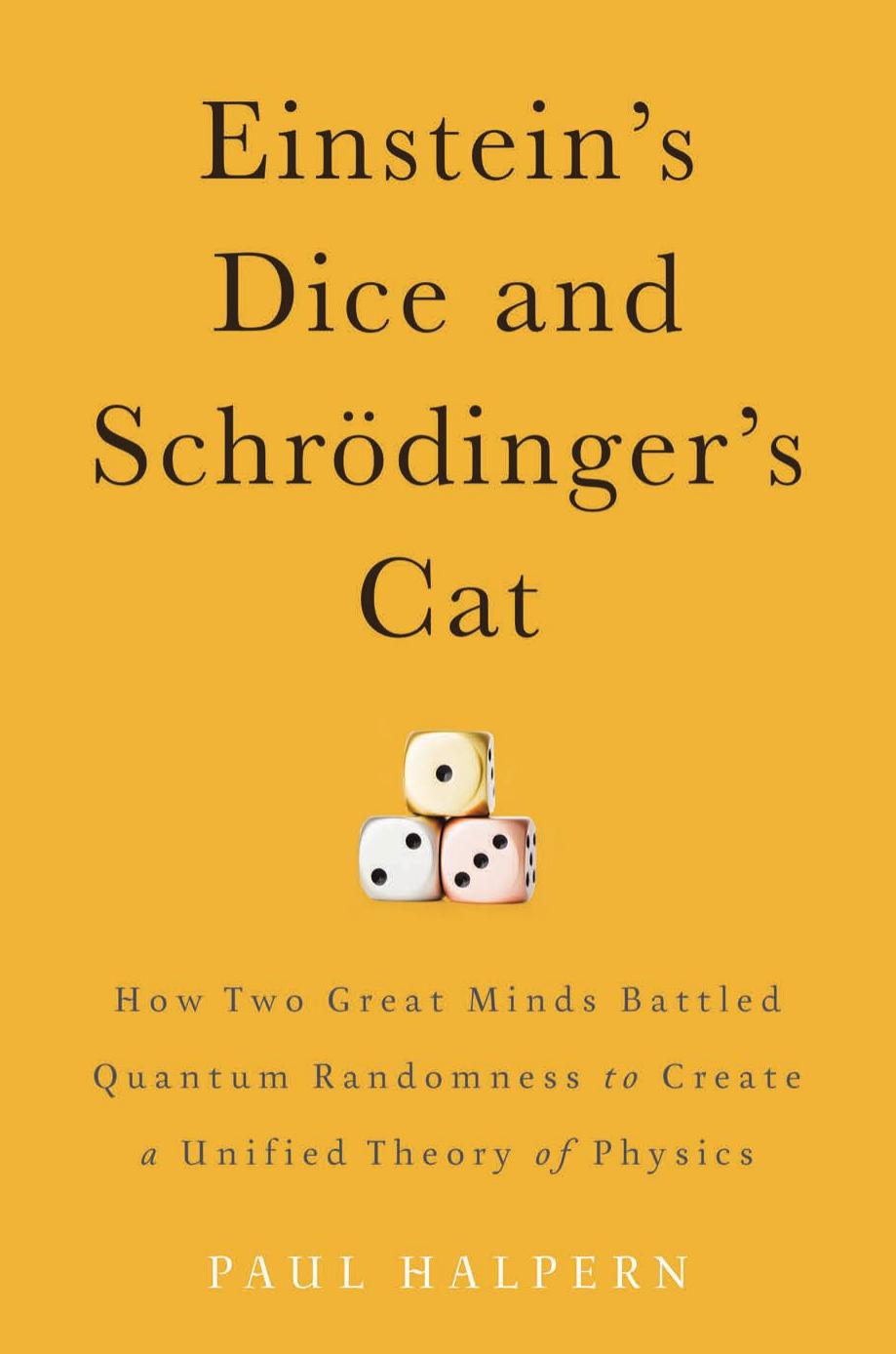
Einstein's Dice and Schrödinger's Cat
How Two Great Minds Battled Quantum Randomness to Create a Unified Theory of Physics
کتاب های مرتبط
- اطلاعات
- نقد و بررسی
- دیدگاه کاربران
نقد و بررسی

February 2, 2015
Halpern (Edge of the Universe) attempts his own grand unification in this look at the lives, work, and friendship of two giants of physics. He details the romances, careers, and politics of contemporaries Albert Einstein and Erwin Schrödinger from their earliest childhood brushes with science to their deaths, updating what is known of Einstein’s life thanks to a recently released trove of early letters. Both Einstein and Schrödinger staunchly believed that randomness had no place in a theory that described the universe and spent much of their later years futilely crafting explanations that failed to fully explain reality. Halpern, himself a physics professor, is challenged by the task of summarizing and explaining the work of his two principal subjects, as well as that of every other serious physicist of the 20th century. Quantum physics, even in précis form, is a level beyond rocket science, and the author does his best, even giving a taste of current progress in the field. Like this pair of geniuses, Halpern has his own difficulties with quantum theory, but as he notes of Einstein and Schrödinger, “even the most brilliant scientists are human.” Agent: Giles Anderson, Anderson Literary Agency.

January 15, 2015
The history of a grand theory-the theory of everything, aka the unified field theory-that never achieved flight and the two household names that kicked the fledgling theory from the nest before its time.This is a solid story of how scientific progress is achieved, or not, incorporating the mindsets Albert Einstein and Erwin Schrodinger brought to the creation and elaboration of their various theories in physics. With verve, Halpern (Physics/Univ. of the Sciences in Philadelphia; Edge of the Universe: A Voyage to the Cosmic Horizon and Beyond, 2012, etc.) explores the fragile nature of scientific collaboration-especially when two substantial egos are involved, compounded by one of them being subject to spells of braggadocio and overreaching-and throws light upon the sometimes-murky worlds of determinism and probabilism. The author is generally clear when dealing with the unified theory and the quest to bring together the fundamental forces of nature, but physics in general is a gnarly topic to make clean and simple for the outsider: "Therefore, the cat would be in a zombielike quantum superposition of deceased and living," is difficult enough to grasp, let alone "the square root of the negative of the determinant of the Ricci tensor." But give Halpern serious credit for melding the wealth of math and physics that influenced both Einstein and Schrodinger's work into a coherent whole-symmetry rules, cosmological constants, non-Euclidean geometry. In addition, the author imbues the story with issues that touched the personal lives of both men. Einstein's life feels familiar and true; Schrodinger emerges as someone scarred by envy and not a little opportunistic-e.g., when he composed a "statement of support for the Anschluss." Halpern ably explores the clashing personalities and worldviews that had physics in churning ferment during the early part of the 20th century.
COPYRIGHT(2015) Kirkus Reviews, ALL RIGHTS RESERVED.

February 15, 2015
Halpern (physics, Univ. of the Sciences, Philadelphia; "Collider; Brave New Universe") describes the relationship between two Nobel-winning physicists. Albert Einstein, who was the elder of the two men, was a mentor to and correspondent with Erwin Schrodinger, and each was supportive of the other's work until their competing ideas on a theory unifying gravity and electromagnetism collided. The clash was exacerbated in large part by a media frenzy to which both contributed and from which both suffered, though they later able made some amends. Rapid changes in physics and in world politics in the 20th century, and events in the men's personal lives are woven elegantly into the narration that is accentuated by poetic section titles such as "Gift from the Devil's Grandmother." A unifying theory is still elusive, leaving one to wonder if, had things gone differently, these two would have validated such a theory and we would know more about our universe. VERDICT A highly approachable book that will appeal to readers high school and up, who are interested in physics, the history of science, and the human and political aspects of scientists and their work.--Sara R. Tompson, Jet Propulsion Laboratory Lib., Archives & Records Section, Pasadena, CA
Copyright 2015 Library Journal, LLC Used with permission.

March 1, 2015
A singular genius, Einstein recognized in Erwin Schrodinger a kindred spirit, writing to the Austrian scientist in 1946, You are my nearest brother, and your brain runs so similar to mine. Armchair physicists may know how Einstein raged against a quantum universe governed by a dice-throwing deity. They may even know how the German titan vainly strove to render that universe irrelevant by formulating a new relativity fusing all fundamental forces. What Halpern plucks from obscurity is the revealing backstory of how Einstein claimed an improbable intellectual sibling in his quixotic fight against quantum randomness. Famous for challenging his colleagues with a thought experiment focused on a cat simultaneously alive and dead, Schrodinger emerges in this narrative of brotherhood as a brilliant intellect but a mercurial personality. Indeed, only emotional volatility can account for the way the younger scientist unintentionally forfeits his brotherhood with Einstein through foolish boasts about his own superior achievement in authoring a supposed master theory of the universe. A tale of cosmic ambitions in earthbound men.(Reprinted with permission of Booklist, copyright 2015, American Library Association.)

























دیدگاه کاربران